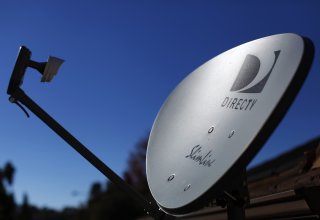Why AT&T Really Wants to Dump DirectTV
DirecTV lost 900,000 subscribers in the first quarter of this year, and another 846,000 in the second quarter, both of which marked the steepest losses by any American cable or satellite provider. However, the company continues to bring in cash, and also maintains its exclusivity on the NFL Sunday Ticket package.
Is AT&T finally getting ready to sell DirecTV? It certainly looks that way, according to a report Tuesday.
Per The New York Post, AT&T has “invited a handful of suitors into the second round of an auction of the struggling satellite-TV broadcaster,” even though the first round of the bidding only amounted to around $15.75 billion. AT&T purchased DirecTV for $49 billion, in a deal that closed in 2015.
The story added that Dish Network, whose CEO has on multiple occasions in the last year described a merger between the two satellite firms as “inevitable,” has not participated in the bidding.
The Post report did not say which firms participated in the first round of bidding, but did say that a pair of private equity firms, Apollo and Platinum Equity Partners, have “taken a look” at DirecTV recently. Potential buyers “are now talking to lenders to see how much money they can borrow to finance a leveraged buyout,” the Post said, citing one such lender.
“People want to spin this as cord-cutting, but AT&T just decided it didn’t like the business anymore,” analyst Bruce Leichtman of the Leichtman Research Group told the Post.
DirecTV lost 900,000 subscribers in the first quarter of this year, and another 846,000 in the second quarter, both of which marked the steepest losses by any American cable or satellite provider. However, the company continues to bring in cash, and also maintains its exclusivity on the NFL Sunday Ticket package.
The Wall Street Journal had reported in August that AT&T was “taking a fresh look at its AT&T business,” and looking at possibly selling the company to a private equity firm. Both Apollo and Platinum Equity Partners were mentioned at the time as potential suitors.
“Pay-TV was a great business for many decades,” AT&T’s CEO, John Stankey, said last month at a Goldman Sachs investor conference, in remarks widely interpreted as addressing the status of DirecTV. “Having to share that market was attractive from a cash flow and a franchise perspective. We really need products and services that maybe have different characterization—characterizations of the buy in.
“Hopefully a little bit lower price point that can be in more households and I think that’s why HBO Max is so attractive… And so, pay TV is an important product to us. We’ve managed, what I would call, more mature and legacy products, very effectively over the history of our business. That customer franchise still has value to us. We want to manage it carefully. We want to be thoughtful about that.”
Stankey, earlier this year, replaced Randall Stephenson- who had made the DirecTV deal - as CEO of AT&T.
Stephen Silver, a technology writer for The National Interest, is a journalist, essayist and film critic, who is also a contributor to Philly Voice, Philadelphia Weekly, the Jewish Telegraphic Agency, Living Life Fearless, Backstage magazine, Broad Street Review and Splice Today. The co-founder of the Philadelphia Film Critics Circle, Stephen lives in suburban Philadelphia with his wife and two sons. Follow him on Twitter at @StephenSilver

